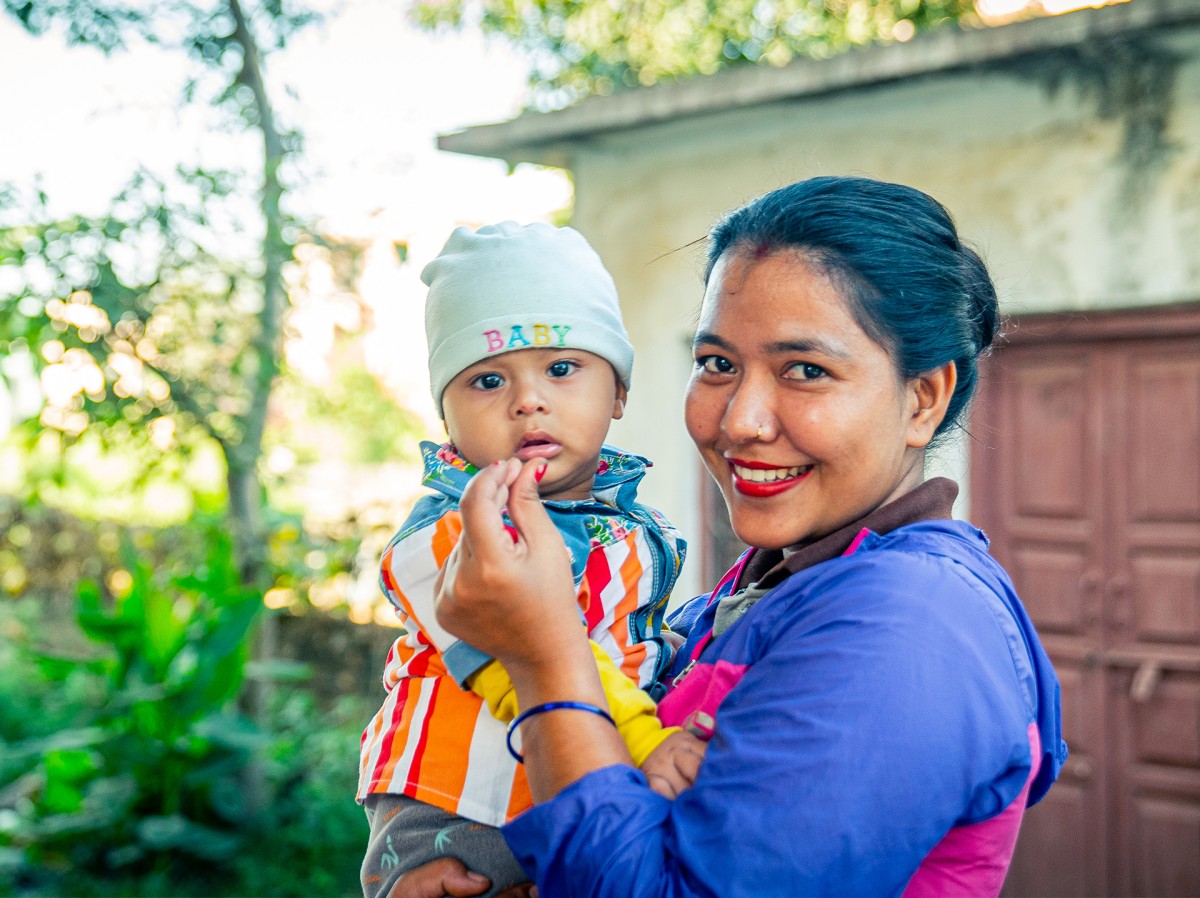Kapilvastu Project
Support good health and hygiene during motherhood with better maternal healthcare and good access to water and toilets.

About the programme Kapilvastu
In the Kapilvastu district in Nepal, Simavi and local partners SOLID and KIDS are supporting disadvantaged women to practice healthy and hygienic behaviour during their pregnancy, delivery and after birth and to make use of the maternal health care services.
As safe drinking water and sanitation are essential to achieve this, women are also supported to make use of sustainable and improved water, sanitation and hygiene (WASH) services.
Women in this district in Nepal face unequal power relations due to a patriarchal social structure and the exploitative nature of the socio-cultural system. Men make decisions for women not only in terms of property rights but also regarding the permission to go outside of their home.
Their stories
Impact of the programme
At the end of the project, women will have sufficient knowledge on hygiene practices and safe deliveries, they will make their own decision if, and when they want to become pregnant and they will feel supported by their family and community with regards to healthy and hygienic behaviour.
The necessary resources will be in place during and after pregnancy and at delivery and women will receive accessible, affordable and inclusive maternal care services. Disadvantaged women feel capable to voice their needs and rights, disadvantaged groups are structurally involved in the project and the community fights exclusion.
Contributing to Sustainable Development Goals (SDGs):
- Goal 3: Good health and well-being - Ensure healthy lives and promote well-being for all at all ages
- Goal 5: Gender equality - Achieve gender equality and empower all women and girls
- Goal 6: Clean water and sanitation - Ensure access to water and sanitation for all
- Goal 10: Reduced inequalities - Reduce inequality within and among countries
Approach of the programme
Through organising women groups we create an information and support structure for all women in the project area:
- By ensuring the women have the right information to base their decisions on,
- By setting up systems to ensure they have the means to go to the health centre,
- By stimulating women to deliver with skilled birth attendance, and improving their knowledge on newborn care
So the women can support each other to improve the health and hygiene related decision making of women especially before, during and after pregnancy.
Social mobilisers support the women groups and also work on ensuring the people around the women will be supportive towards them: ensuring the key influencers (for example men, mothers in law, other in-laws, peers) have the right knowledge, attitude and skills to support the women to attend antenatal check-ups, deliver at the clinic and go to post-natal check-ups, support them in their health and hygiene behaviour, respect their choices and be inclusive towards minorities and the most vulnerable.
To ensure the women have access to quality health and WASH services local health workers, and health volunteers are trained on hygiene standards and on providing quality services related to pregnancy and childbirth and care as per national standards. WASH committees will be supported with knowledge and skills to sustainably improve WASH facilities at the health facilities and in the communities, and through advocacy methods, like social accountability or budget tracking. Through collaboration with the local government they are stimulated to increase their efforts to improve the situation as well.
Budget: €404.000, Duration: 3 years, Location: Nepal
In-country partners
Do you want to know more about our programmes? Our programme team is happy to support!
More programmes:
Check2gether (GC-1000)
Improving the health and wellbeing of mothers and babies in Africa and Asia through group care. Group care for (pregnant) mothers and their partners is a proven success, especially for the most vulnerable women and girls.
Golden Line
There is often still sexual violence against women around the gold mines in Ghana and Tanzania. This is why Simavi works in these areas on education and information about sexual health and rights.




